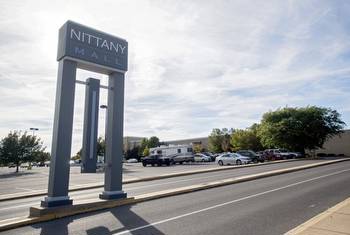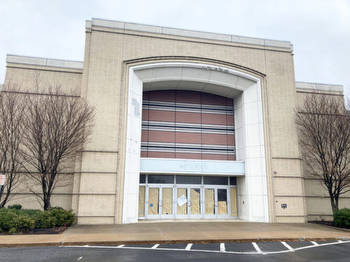Gaming control board schedules public hearing for proposed casino
STATE COLLEGE — The Pennsylvania Gaming Control Board has scheduled a hearing to receive public input on the category 4 mini-casino planned for the former Macy’s location at the Nittany Mall.
The hearing will take place at 4 p.m. on Monday, Aug. 16, at the Penn Stater Hotel and Conference Center.
It “will provide a forum for individuals to voice their support or opposition to the proposed casino at the Nittany Mall and to permit those persons with an interest in the applicant’s proposal to learn more about the project,” according to a PGCB news release.
Individuals will be able to attend and offer testimony in-person or remotely and the hearing also will be streamed live on the PGCB website.
A page on gamingcontrolboard.pa.gov will be made available on Wednesday, July 21, with additional information on the project and a link to register to speak at the hearing either in person or remotely, or submit written testimony.
The deadline to register to speak or submit written testimony will be noon on Thursday, Aug. 12.
“A separate public hearing will be held at a later date in Harrisburg where SC Gaming Op Co., LLC representatives and the PGCB’s Office of Enforcement Counsel will offer any updated evidence and make oral argument as to whether the license should be granted,” according to the release.
“At that later hearing, unlike the August 16th hearing, which is primarily meant to capture and place on the evidentiary record public input, the Board members can also ask questions of the Applicant and Enforcement Counsel.”
Investor and former Penn State trustee Ira Lubert had a winning bid of $10 million at a September 2020 auction for a new license for a Category 4 casino that would be located in Centre County.
In January, Bally’s Corporation announced it had signed an agreement with Lubert to develop a planned $120 million mini-casino but at the time only indicated it would be located “near the Nittany Mall.”
SC Gaming Op Co., LLC submitted an application and local impact report in March that identified the former Macy’s property as the planned location.
In the application to the PGCB, SC Gaming Op Co. lists Lubert as the company’s president and Ara Kervandjian, Robert Poole and Richard Sokolov as vice presidents. Kervandjian and Poole are prolific Centre County developers. Sokolov is vice chairman of retail real estate company Simon Property Group and a prominent Penn State benefactor.
Eric Pearson, formerly president and CEO of Valley Forge Casino Resort (which Lubert previously owned), is identified as general manager and CEO for the new casino once it begins operations.
The new casino is expected to have 750 slot machines and 30 table games. If approved for separate licenses and certificates, it will provide retail sports betting, online sports betting and online gaming. It also will have restaurant and entertainment facilities.
Pending license and permit approvals, construction is expected to begin later this year and take approximately one year to complete. SC Gaming Op Co. and Bally’s will jointly design, develop, construct and manage the casino.
According to an impact study by Econsult Solutions Inc., the casino projects revenue of $91 million in the first year of operation and increasing to $116 million by its 10th year.
It is expected to have 390 full-time equivalent jobs upon opening, increasing to 440 in subsequent years. The report projects $121.6 million in direct and indirect annual economic impact within the township economy, supporting 480 jobs. In Centre County, the study estimates $164 million annual economic impact, supporting 740 jobs.
Host municipalities and counties receive 2 percent of a casino’s slot machine revenue and 1 percent of table game and sports book revenues. The impact study estimates the gaming revenues and taxes would yield $1.6 million for College Township in the first year of operation and $2 million at stabilization.
“While College Township did not seek out this use, this potential has existed because of our existing zoning,” Township Manager Adam Brumbaugh said in March. “Thus, the casino is about creating an opportunity for redevelopment of the mall, driving traffic to our commercial areas, creating jobs and expanding retail, dining and lodging choices.
“This project, if it comes to fruition, isn’t as important to the township as it is to the property in question and the area around the Nittany Mall. The Township doesn’t need casino revenues to sustain itself. This is a property-specific opportunity for a specifically challenged property.”
The impact report estimates an additional 6.2 police calls, 2.2 fire calls and 2.0 EMS calls per month as a result of a College Township casino. State College police and Alpha Fire Company officials anticipated negligible impact on their operations. The report anticipates “some impact on EMS” but Centre LifeLink EMS Chief Kent Knable said “did not anticipate that the proposed casino would create further capacity challenges.”
Impacts on the township’s road, water and sewer infrastructure are anticipated to be minimal because they are already equipped for full mall occupancy.



























